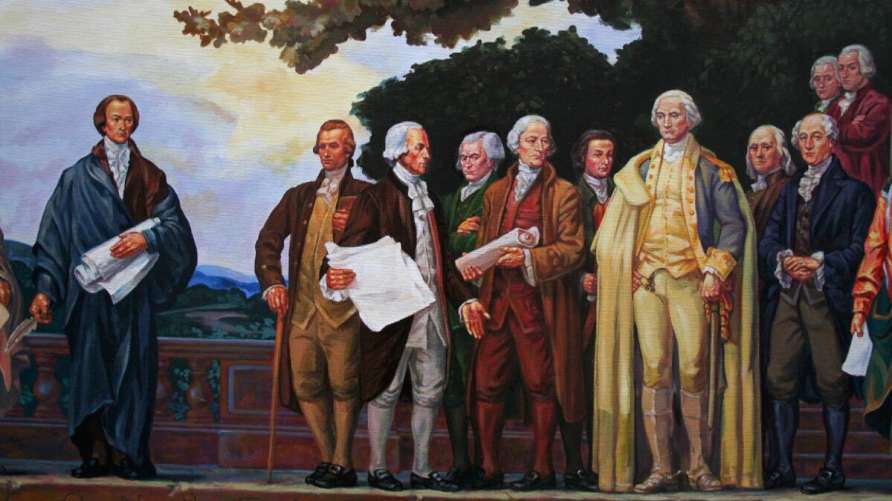Most Americans celebrating the July 4 holiday today don’t fully realize that the power of ideas in the Declaration of Independence was the critical enabling factor for the Americans to win the War of Independence. Compared to the British professional military, the American colonial army was simply no match—it was undermanned, underfunded, underequipped, inexperienced, and undertrained. At the outset of the war, the British Royal Navy had 270 warships deployed in American waters, while the Continental Navy had seven ships.
On July 4, 1776, in what is now Manhattan, New York, Gen. George Washington was preparing for battle. He had no idea that a Declaration of Independence was being released in Philadelphia that day, as he pondered the sobering stream of British ships coming through the Narrows and anchoring off Staten Island in New York Harbor.
A month before, Washington had written a letter to his brother, saying: “We expect a very bloody summer of it in New York… If our cause is just, as I do most religiously believe it to be, the same Providence which in many instances appeared for us, will still go on to afford its aid.”
On July 4, 1776, in Philadelphia, it was also a somber day when those 56 members of the Continental Congress committed to signing the Declaration of Independence. Each knew that becoming a signatory put a death warrant on their heads for being a traitor to Great Britain.
Thus, the first Declaration of Independence that was signed on July 4 did not have signatures identifying the committed delegates. Rather, there were two signatures on that first document: John Hancock, president of the Continental Congress, and Charles Thomson, secretary of the Continental Congress.
It took more than two weeks for the Declaration to be “engrossed”—that is, written on parchment in a clear hand. Many of the 56 delegates to the Continental Congress who had agreed to sign the document did so on August 2, but new delegates replaced some six of the original delegates and an additional seven delegates could not sign until many weeks later. Recognizing the long odds against the small and underequipped American colonial army defeating the British army and navy—the most formidable military force in the world—the Continental Congress decided to hold the 56-signatory Declaration for release at a later time.
Washington’s First Read of the Declaration
Washington was in New York preparing its defense when on July 6, 1776, a courier arrived to deliver a copy of the two-signature Declaration of Independence that had been released in Philadelphia several days before. Deeply moved by the power of the Declaration’s words, Washington ordered copies sent to all generals in the Continental Army and that chaplains be hired for every regiment to assure that, “every officer and man, will endeavor so to live and act, as becomes a Christian Soldier, defending the dearest Rights and Liberties of his country.”
Like the Mayflower Compact, the Declaration was a true covenant with God of absolute commitment, with its last sentence invoking: “with a firm reliance on the Protection of Divine Providence, we mutually pledge to each other our Lives, our Fortunes, and our sacred Honor.”
Washington read the Declaration repeatedly and became so moved that, on July 9, he called a halt to his troops’ battle preparations and announced a respite and gathering to read the Declaration to his soldiers and the townspeople. The crowd hustled down to lower Manhattan, where they gazed out at a forest of masts of the British ships at anchor in New York harbor. After the reading, when a few of the rowdies in the group spotted a...
Read More HERE

No comments:
Post a Comment